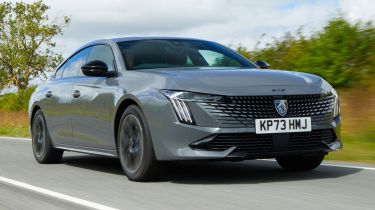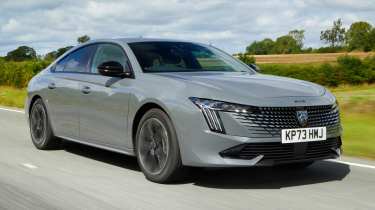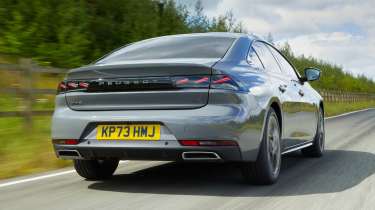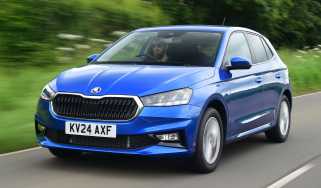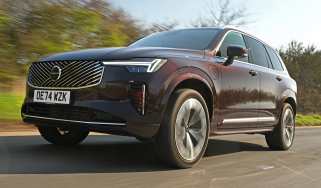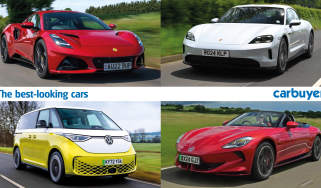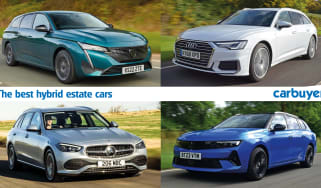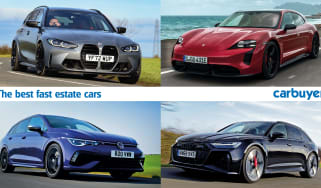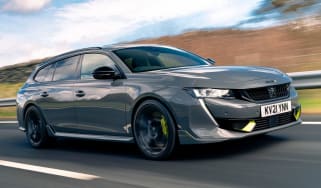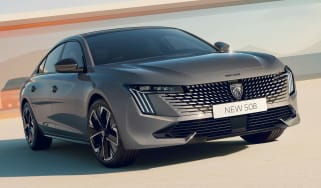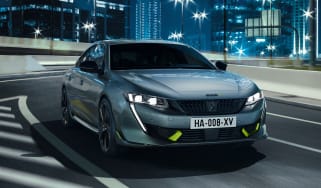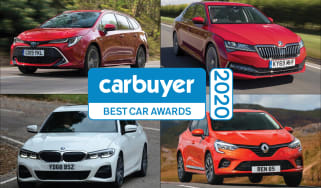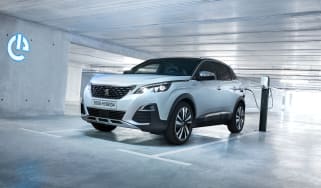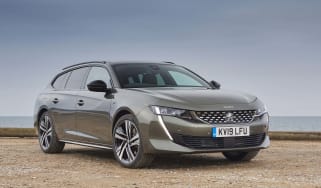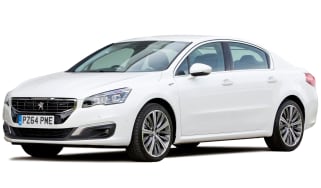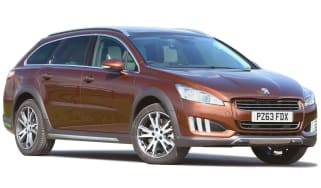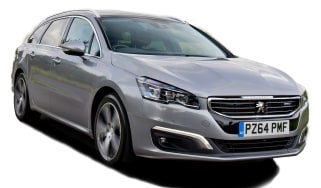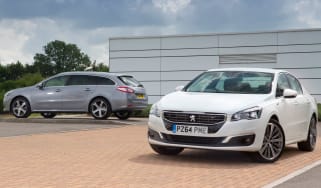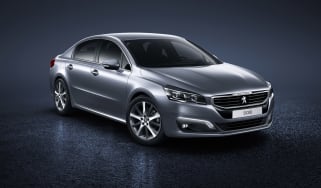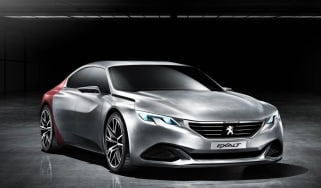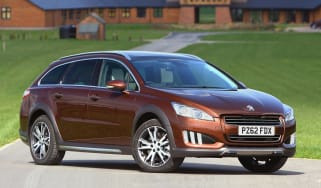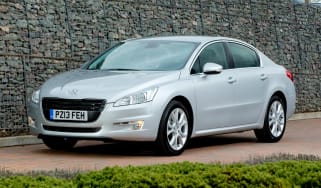Peugeot 508 hatchback review – a sleek, efficient compact executive car
"Peugeot has upped its game with its latest 508, a big hatchback that could give premium rivals a fright"
Pros
- Arresting looks
- High-tech interior
- Engaging handling
Cons
- Limited rear-seat headroom
- Few petrol engines
- Occasionally choppy ride
Verdict – is the Peugeot 508 a good car?
The Peugeot 508 has loads of appeal, with sporty looks and an imaginatively designed interior, and it drives at least as well as its Skoda and Volkswagen rivals. While it might prove difficult to persuade buyers away from their SUVs, the 508 might well attract sales from would-be BMW, Audi and Mercedes buyers – especially the plug-in hybrid model with its low Benefit-in-Kind rate for company-car drivers.
Peugeot 508 models, specs and alternatives
Peugeot demonstrated that it hadn't lost faith in the large saloon car market when it introduced the 508 in 2019. Falling demand for similar family cars has killed off the likes of the Ford Mondeo and Mazda6 in recent years, so the Peugeot 508 seems to have an uphill struggle on its hands. Can its sharp looks and high technology levels make it a viable alternative to its direct rivals, or even the ever-popular BMW 3 Series, Audi A4 and Mercedes C-Class from the compact executive class? Peugeot certainly hopes so.
The 508 slots into a range that includes the 2008, 3008 and 5008 for buyers who simply must drive an SUV, leaving it free to fulfil the more traditional family-car role with more than a little style. It's easily the most eye-catching large car to come from the brand in a very long time.
The latest 508 has more visual appeal than its rather forgettable predecessor. It's a confident-looking machine at a time when car-park prestige is all-important – and has a massive bearing on the residual-value figures that control Personal Contract Purchase (PCP) deals and are so crucial to fleet operators.
More reviews
Early 508s feature a nose dominated by a front grille that’s either slatted or studded, depending on trim level, and flanked by purposeful-looking headlights. A mild suite of upgrades in 2022 made LED headlights standard, and saw the door mirrors and grille given a black treatment. Some trim levels even get fang-like daytime running lights, which give the car an even more eye-catching look.
A major facelift arrived in 2023, thoroughly overhauling the front-end design. Updates included Peugeot’s latest shield logo, plus new matrix LED headlights including the brand’s ‘three-claw’ signature – now standard on all cars. A similar signature also features as part of the rear lights, with scrolling directional indicators also upping the premium look.
Facelifted or not, all 508s look sporty and distinctive, and fit well with the corporate style seen elsewhere in the Peugeot range. This family resemblance is also encountered at the rear of the car, where noticeable blisters top the rear wheel arches, and a dark panel that runs horizontally through the bootlid is pierced by the glow of three tail-lamps either side. The 508's sweeping fastback form is reminiscent of the Volkswagen Arteon, as are its frameless windows, and this gives the Peugeot quite an upmarket flavour.
The interior is no less bold in style. We've become used to cutting-edge cockpit design in Peugeot's SUV range and the 508 offers a similar look and feel. The dashboard has been styled to accommodate a driving position that's more low-slung and laid back than the one in the Peugeot 5008 SUV, but shares that car's small steering wheel, which is intended to be looked over instead of through when you’re glancing at the instruments. It makes it easy to see Peugeot's i-Cockpit digital display, which is standard across the range and can be configured to display an array of information. Combine this with the row of piano-key buttons for minor controls and the 508 has a real hi-tech ambience.
A sportier model joined the ranks in 2020, acting as a halo model at the top of the 508 range. Called the Peugeot Sport Engineered (PSE), it has a 350bhp plug-in hybrid drivetrain and racy touches to match its performance. There are winglets on the bumpers, deep air intakes and lots of acid green flashes to distinguish it from the rest of the range.
Although the 508 is big on sporty appeal, not all versions have quite the power to live up to the car's muscular looks. The sole petrol engine is a 1.2-litre four-cylinder known as the PureTech 130, connected to a standard-fit eight-speed automatic gearbox. It's an efficient engine, but with just 129bhp, pace is rather leisurely. While a powerful 1.6-litre PureTech 180 petrol engine and a 222bhp version called the PureTech 225 were previously reserved for higher trim levels, as of 2024 these have both been discontinued.
Alongside the petrol engine, the 508 is available with the choice of two plug-in hybrid versions. Aside from the high-performance 350bhp PSE model, the regular PHEV has a 1.6-litre turbocharged petrol engine with 178bhp, along with a 108bhp electric motor. Combined, they can produce up to 222bhp and enable an electric range of up to 42 miles. It’s an impressive amount of power, but the additional motor and battery pack also makes the PHEV quite a bit heavier. The hybrid model is the most affordable version to run for company-car drivers, with just 29g/km of CO2 emissions bringing savings in some key areas. However, costing almost £38,000 in Allure Premium trim, it is a pricey car to buy privately.
Diesel buyers were offered the 1.5-litre BlueHDi 130 model with fuel economy of up to 64mpg, as well as a more powerful BlueHDi 180 diesel engine. Both only ever appealed to high-mileage and company-car drivers, and have been removed from sale.
It’s a shame that the punchier petrol and diesel versions are no longer available, as the latest 508 has the handling to exploit the added power. It can't match the BMW 3 Series for sheer joy, but few will complain that the Peugeot is dull to drive, and it's more fun than a Volkswagen Passat or Skoda Superb.
Independent car safety organisation Euro NCAP awarded the 508 an impressive five-star rating. No doubt contributing to this achievement is the driver assistance pack, consisting of adaptive cruise control with a stop-and-go function. Lane-positioning assistance is available, while autonomous emergency braking is standard across the range.
We can't vouch for the 508's reliability as it hasn't featured in our annual Driver Power owner satisfaction survey. Peugeot was the best-performing French brand in our 2023 survey, though, coming in ninth place out of 32 brands overall.
